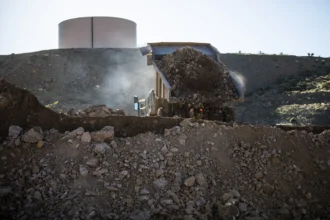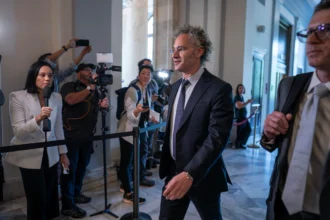In a striking setback for global climate efforts, major energy corporations Shell, Aker BP, and Enbridge have announced their departure from the advisory board of the Science Based Targets initiative (SBTi), a leading global body that sets corporate net zero standards. The decision comes in response to a recently released draft standard by the SBTi that proposes a ban on new oil and gas exploration and development projects as part of meeting rigorous climate targets.
Rising Tensions Between Fossil Fuel Industry and Climate Frameworks
The SBTi’s draft standard aims to align corporate targets with the global goal of limiting warming to 1.5 degrees Celsius, which necessitates a rapid phase-out of fossil fuels. This includes an unprecedented call for companies to halt investments in new oil and gas infrastructure, signaling a sharp pivot away from traditional energy sources. However, the energy giants see this as a direct threat to their business models and future growth, prompting their exit from the advisory group.
Industry insiders suggest that these departures reflect deep divisions between the fossil fuel sector’s efforts to adapt and decarbonize, and the increasingly stringent demands of climate accountability frameworks that are reshaping the global energy transition landscape.
SBTi’s Response and Industry Pressure Allegations
Following the backlash, the SBTi announced it would pause further work on finalizing the oil and gas standards to engage in more stakeholder consultations. However, the organization has denied claims that the pause was due to pressure from industry players, maintaining that the move was a routine part of the standard-setting process aimed at gathering broader consensus.
Despite these assurances, climate advocates and analysts warn that the episode exposes the fragility of voluntary climate initiatives when confronted with entrenched corporate interests. It also raises questions about the ability of global net zero alliances to enforce meaningful restrictions on fossil fuel expansion without losing key participants.
Implications for Global Climate Goals
The withdrawal of Shell, Aker BP, and Enbridge—among the world’s largest oil and gas producers—could weaken the credibility and influence of the SBTi, which has been instrumental in encouraging hundreds of companies to commit to science-based emissions reduction targets. Their exit may embolden other fossil fuel companies resistant to aggressive climate policies, potentially slowing momentum toward decarbonization.
This standoff highlights the broader challenge facing policymakers and climate institutions: balancing the urgent need to curtail fossil fuel use with economic realities and geopolitical dependencies on oil and gas. As governments debate tighter regulations and investment shifts, the fossil fuel industry’s pushback signals that the path to net zero remains fraught with conflict.
Looking Ahead
With climate deadlines looming and energy markets in flux, the future of global net zero initiatives depends heavily on bridging the gap between environmental imperatives and industry willingness to transform. The current impasse serves as a cautionary tale about the complexities of aligning diverse stakeholders under ambitious climate frameworks.
Observers will be watching closely as the SBTi resumes consultations and updates its standards, and whether the energy giants reconsider their stance or deepen their disengagement from climate governance.














